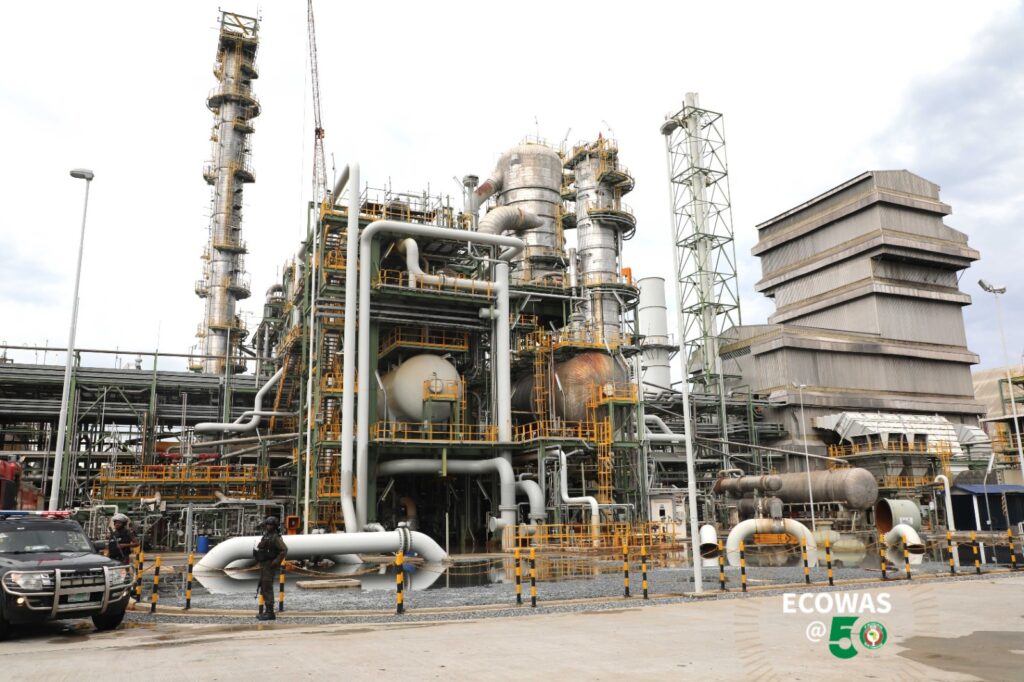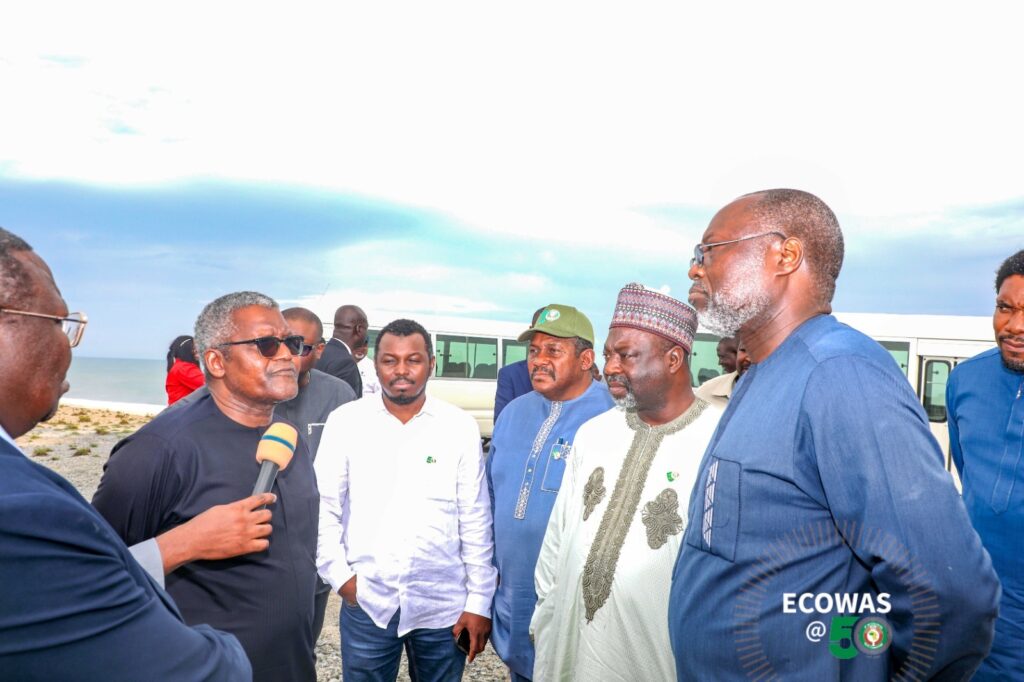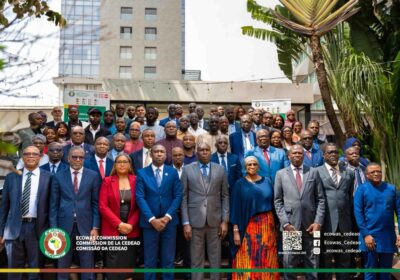Dr Omar Alieu Touray Touray to Dangote, Join ECOWAS in Shaping West Africa’s Future Through Private Sector Leadership.
By Raymond Enoch
In a passionate appeal that underscored the strategic role of Africa’s business elite in the region’s future, H.E. Dr. Omar Alieu Touray, President of the ECOWAS Commission, has called on Aliko Dangote and other private sector leaders to take centre stage in driving development and eradicating poverty across West Africa.

Speaking during a high-profile visit to the Dangote Petroleum Refinery and Petrochemicals FZE in Lagos on 29 May 2025, Dr. Touray emphasized that “ECOWAS aims to make the private sector the driving force behind development and the fight against poverty in West Africa.”
The visit formed part of the sidelines of the 50th anniversary celebrations of the Economic Community of West African States (ECOWAS), hosted in Nigeria’s commercial capital. Dr. Touray was accompanied by Professor Abdullahi Nazifi Darma, Commissioner for Internal Affairs, Mr. Sediko Douka, Commissioner for Infrastructure, Energy and Digitalisation, and other senior ECOWAS officials.
The Dangote refinery, a massive $20 billion industrial complex sprawled across 2,635 hectares, represents the single largest private investment in Africa. Owned by Aliko Dangote—Africa’s richest man—the refinery is seen not only as a symbol of industrial ambition but as a potential catalyst for job creation and economic transformation.
Touring the facility alongside Dangote, Dr. Touray reaffirmed ECOWAS’s intent to foster stronger partnerships with the continent’s leading entrepreneurs. He stressed that while Member States are working diligently to uplift their populations, sustainable progress demands the muscle, innovation, and capital of the private sector.

“We cannot defeat poverty and youth unemployment in isolation,” Touray stated. “We need industry leaders like Mr. Dangote to align their efforts with our regional development policies. The future of West Africa depends on synergy between public institutions and private enterprise.”
In response, Dangote expressed gratitude for the visit and acknowledged the vital role regional collaboration plays in achieving shared economic goals.
With unemployment and economic inequality persisting as critical challenges in the region, the ECOWAS Commission’s latest outreach signals a policy pivot—recognising that prosperity cannot be built by government action alone. It must be powered by the factories, ideas, and investments of the private sector.
As ECOWAS marks half a century of existence, the message from its top leadership is clear: Africa’s private giants are not just economic players—they are essential partners in building the West Africa of tomorrow.








